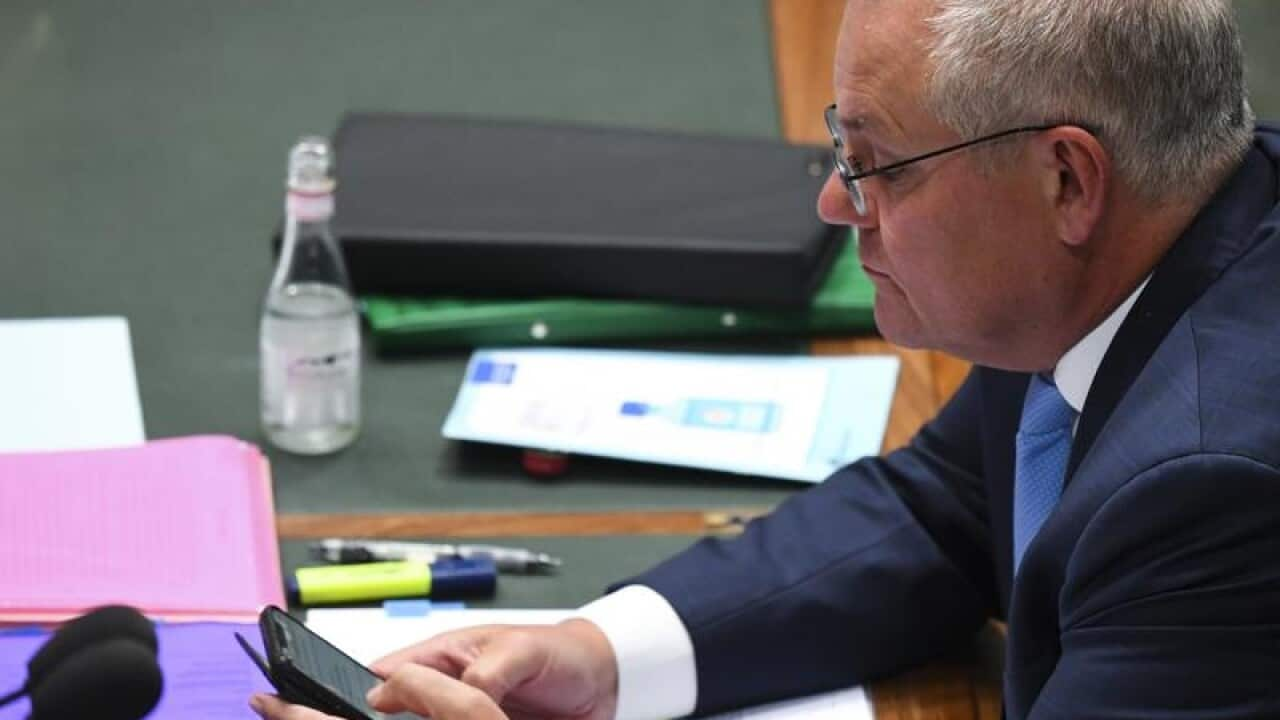Former political staffer Brittany Higgins' distressing rape allegation has shocked Australia by revealing how women are treated within politics and how sexual assault complaints are dealt with.
Ms Higgins alleges she was raped by a male colleague in a government minister's office inside Parliament House in March 2019.
Since Ms Higgins spoke out last month, several more allegations have surfaced against Australian politicians and political staffers.
This includes an allegation involving the rape of a women in 1988 by a current cabinet minister - made public after an anonymous letter was referred to the Australian Federal Police.
A historic rape accusation against a Labor MP has also been referred to authorities.
Amid the allegations, Prime Minister Scott Morrison's government is facing pressure to address prevailing concerns over the workplace culture of Parliament House.
Here's how events have unfolded since Ms Higgins went public.
Brittany Higgins speaks out about allegation: 15 February
Brittany Higgins on 15 February went public with her account, alleging she was raped by a male colleague in a minister's office two years ago, after security guards let the pair into Parliament after hours.
Ms Higgins - who was 24 years old when the alleged incident occurred - claims she felt pressured at the time to choose between her career and reporting the allegation to police.
Mr Morrison, who claims he learned about Ms Higgins' allegation for the first time after she went public, later responded in Parliament calling her account “deeply distressing”.
He said the government had attempted to provide Ms Higgins with support following the alleged incident.
Scott Morrison apologises to Ms Higgins: 16 February
The following day, Mr Morrison apologised to Ms Higgins following sharp criticism of the government’s handling of her allegations.
He expressed regret for the way Ms Higgins had been treated following her complaint, which he described as a "wake up call" for the Parliament.
"She said to me: 'You have to think about this as a father. What would you want to happen if it were our girls?," Mr Morrison told reporters.
Mr Morrison, on the same day, announced a government-led review into how ministers and staff are held to account over claims of harassment.
This included tasking his department’s deputy secretary Stephanie Foster to lead a review of how the complaints process is conducted.
He also asked Liberal MP Celia Hammond to conduct a review into the workplace culture at Parliament House.
Senator Reynolds offered Ms Higgins an apology amid criticism of her own response to Ms Higgins' complaint, including her decision to not notify Mr Morrison about the allegations.
Political fallout from allegations continues: 17 - 19 February
Mr Morrison responded to growing calls from Labor, the Greens and independents to hold a bipartisan and independent inquiry into the workplace culture inside Parliament House on 17 February.
Political opponents had been sharply critical of the government's response, saying an independent review outside of government influence was crucial.
Mr Morrison and his government have continued to face questions over who knew what, and when.
She said the government had "questions to answer for their conduct".
“The continued victim-blaming rhetoric by the Prime Minister is personally very distressing to me and countless other survivors,” Ms Higgins said in a statement.
Mr Morrison on 19 February said the head of his department Phil Gatjens would investigate when the prime minister’s office learned about the alleged rape of Ms Higgins.
Ms Higgins has also re-engaged in the formal complaints process with the AFP.
AFP commissioner intervenes with warning for Parliament: 25 February
Australian Federal Police Commissioner Reece Kershaw on 25 February wrote to Mr Morrison, warning that allegations of criminal conduct should be reported without delay.
This came amid concerns over whether members of the government had been reluctant to report Ms Higgins' allegations to Police earlier.
Mr Morrison had requested that the AFP provide the guidance to MPs and Senators.
Trust in the government's response to dealing with sexual assault allegations has also been called into question through new polling.
The Essential poll found two-thirds of people believe the government has been more interested in protecting itself than the interests of the women who have made sexual assault allegations.
The poll of 1074 people also found just 34 per cent of people trusted political offices to be safe work environments.
Cabinet minister accused of rape: 26 February - 1 March
The Australian Federal Police were notified on 26 February about an anonymous letter detailing an alleged historical rape by an unidentified man who is now a cabinet minister.
Prime Minister Scott Morrison, Labor Senator Penny Wong and Greens Senator Sarah Hanson-Young all received the letter.
The incident is alleged to have occurred in 1988 when the woman was 16.
The woman went to NSW Police last year, but the investigation was suspended when she took her own life in Adelaide in June 2020 after telling authorities she didn't want to proceed.
Victorian Senator Sarah Henderson on 28 February also referred a rape allegation against an unnamed Labor MP to the Australian Federal Police.
The cabinet minister has since . He will likely make a public statement on 3 March.
If you or someone you know is impacted by sexual assault, call 1800RESPECT on 1800 737 732 or visit .
Readers seeking support with mental health can contact Beyond Blue on 1300 22 4636. More information is available at . supports people from culturally and linguistically diverse backgrounds.

















